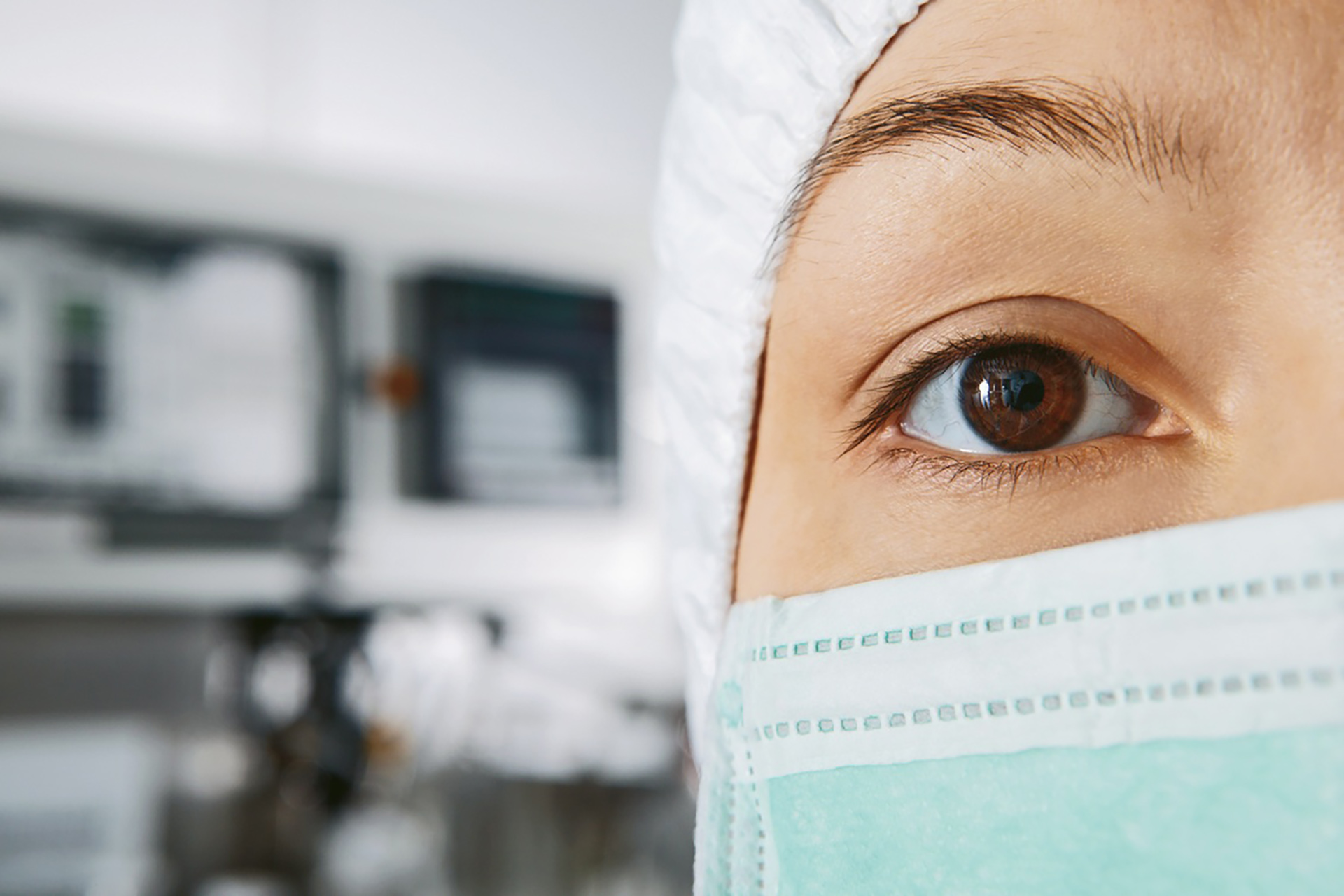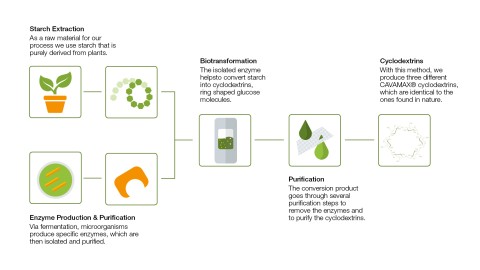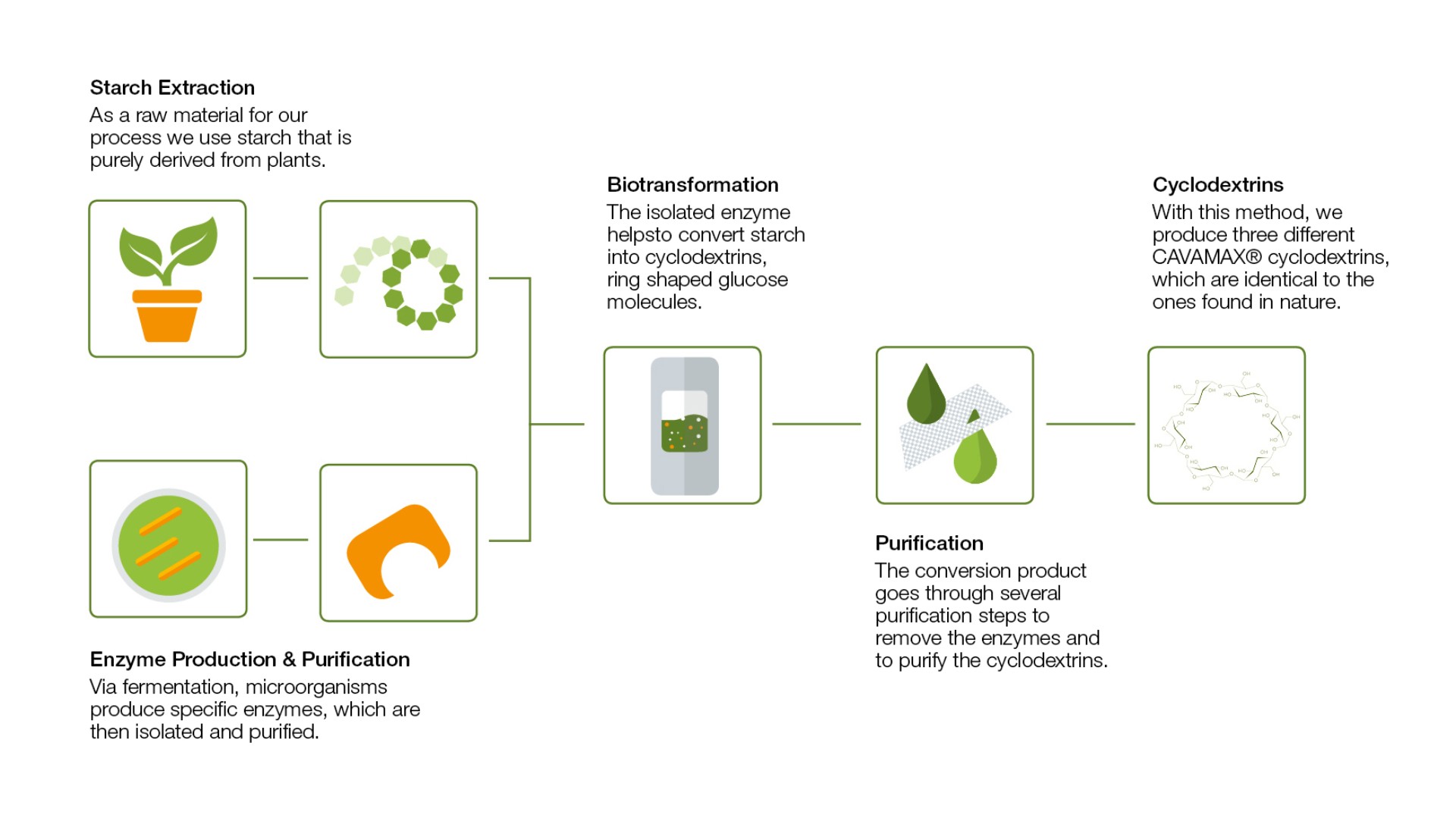Personal Protective Equipment (PPE)
Cyclodextrins
Protective gowns, disposable gloves, respirators: During the corona virus pandemic, the use of personal protective equipment (PPE) is currently essential, especially in the medical field. New applications have been developed that boost the protection afforded by PPE by treating such fabrics with cyclodextrin formulations. Studies report that cyclodextrins have antiviral properties.
These ring-shaped sugar molecules have a hydrophilic or water-loving exterior and a lipophilic or fat-loving cavity in their interior. This cavity is capable of enveloping other lipophilic molecules. “When a virus gets in contact with cyclodextrins, they can bind to the lipids on the surface of the virus. The idea here is that the disruption caused to the functionality of the virus membrane results in the destruction of the virus itself,” says Dr. Mark Harrison, responsible for industrial applications of cyclodextrins at WACKER.

One advantage of using sugar-based cyclodextrins and their derivatives is that they do not cause any skin irritation. They differ in this respect from alcohol, which is often found in high concentration in hand sanitizers, and from bleach.
Cyclodextrins consist of multiple glucose building blocks linked together in a ring. Depending on the size of the ring, a distinction is made between α-cyclodextrin with six, β-cyclodextrin with seven and γ-cyclodextrin with eight glucose units.
WACKER is the world’s largest producer of cyclodextrins and the only company to produce all three naturally occurring cyclodextrins, marketing them under the trade names CAVAMAX® W6 (α-cyclodextrin), W7 (β-cyclodextrin) and W8 (γ-cyclodextrin). Cyclodextrins from WACKER are manufactured at the company’s US site in Eddyville, Iowa, where enzymes are used for converting corn starch into the glucose rings. The cyclodextrin derivatives produced by modifying these α-, β- und γ-cyclodextrins by hydroxypropylation or methylation are marketed by WACKER under the name CAVASOL®.
Overview

WACKER's efforts against coronavirus
Picture

New applications have been developed that boost the protection afforded by PPE by treating such fabrics with cyclodextrin formulations.


